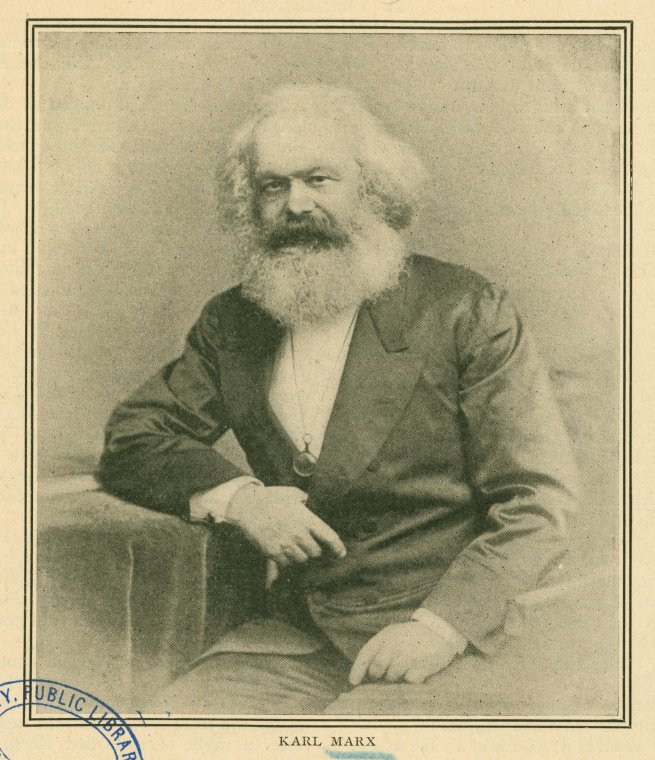Liberty Matters
A Brief Comment on the Marxist Aesthetic
 Pete Boettke argued in his first comment that Marxism, its core vision, has a powerful appeal to it. In a sense, it is aesthetically robust despite its serious theoretical and predictive shortcomings. David Hart suggests that if there is any aesthetic appeal in Marx, it most likely comes from his journalistic, as opposed to his theoretical, writings.
Pete Boettke argued in his first comment that Marxism, its core vision, has a powerful appeal to it. In a sense, it is aesthetically robust despite its serious theoretical and predictive shortcomings. David Hart suggests that if there is any aesthetic appeal in Marx, it most likely comes from his journalistic, as opposed to his theoretical, writings.I'd like to suggest, and I think Pete would agree with me, that the aesthetic appeal lies mostly in Marx's theory as opposed to his journalism or, as Virgil Storr suggested, his empirics. One need only read Martin Jay's powerful book, Marxism & Totality: The Adventures of a Concept from Lukacs to Habermas (1984), to get the argument that Pete is making. Marx's totalistic theory, his dialectical understanding of history as class struggle, and his belief in the total abolition of capitalist institutions and the inevitable move towards a final resolution in a socialist endpoint make for an exciting read and one hell of a radical vision. It attracted a great many scholars in the 20th century.
Now whether, as Steve Horwitz suggested, classical liberals should construct a counter-aesthetic (he said it was "incumbent" upon us to do so), one which is designed "to focus instead on the ways in which markets are beautiful and creative, how they enable us to self-actualize," I will leave for him to continue to push toward. I myself fear that Steve's effort, focusing on the "beauty" of markets, might squeeze out features of markets that are open to sustained critical examination. Stories like "I, Pencil" seem to satisfy Steve's aesthetic sensibilities, but I wonder if "I, Meth Pipe" would appeal to the same sense of beauty, creativity, and self-actualization.
Copyright and Fair Use Statement
“Liberty Matters” is the copyright of Liberty Fund, Inc. This material is put on line to further the educational goals of Liberty Fund, Inc. These essays and responses may be quoted and otherwise used under “fair use” provisions for educational and academic purposes. To reprint these essays in course booklets requires the prior permission of Liberty Fund, Inc. Please contact oll@libertyfund.org if you have any questions.